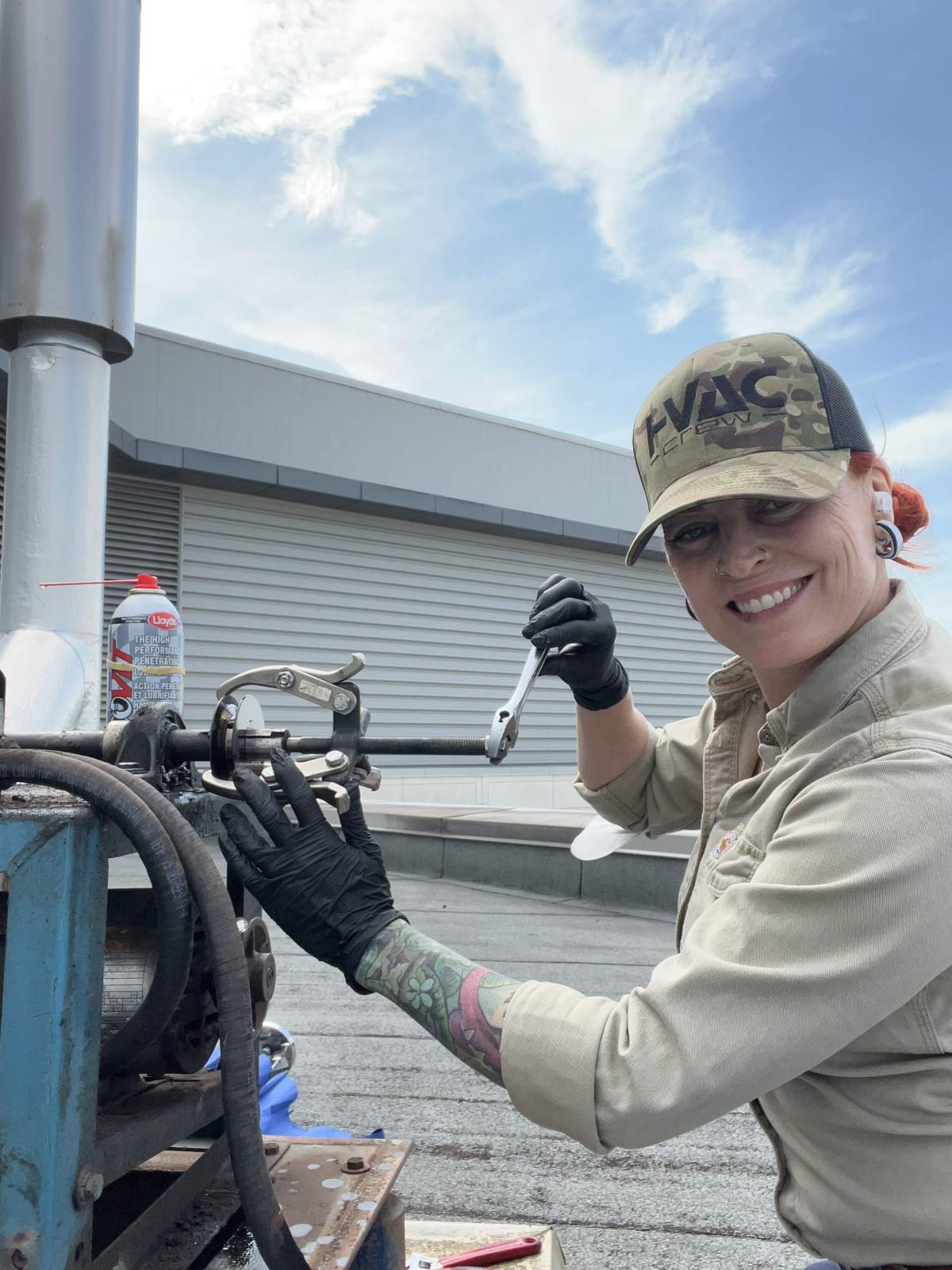On a day meant to celebrate women and the fight for gender equality, one woman is sharing her story as she pushes to change the culture in the skilled trades and make it more inclusive.

Brandi Ferenc, 51, from Stouffville, Ont., is the keynote speaker at this year’s International Women’s Day Luncheon in Barrie.
As a journeyperson, HVAC mechanic, instructor and business owner, Ferenc is working to inspire more women to enter the skilled trades and address the systemic barriers she says keep women out.
“It definitely wasn’t a straight path coming into the trades. Like most women, it wasn’t something I was introduced to in high school, although I grew up in a blue-collar family. My dad’s electrician, my grandfather was a carpenter, and my brother pursued the skilled trades, but I was pushed towards university,” she says.
Being the first in her family to attend university, Ferenc says she quickly realized she did not want to do a desk job.
After spending several years in the hospitality industry, she became more interested in a job in trades after listening to the stories of the customers she served.
However, entering the trades as a woman in the early 2000s would prove to be harder than she thought.
“I just figured our days of fighting for equity were over, and we held equal ground in all areas of life. But it became apparent we didn’t,” she says.
“Even though you don’t need any experience to become a first-year apprentice, that was the very politically correct way of them telling me I wasn’t welcome at their company.”
Ferenc says she persevered, applying for a carpentry program at her local college to get some experience. From there, she says she worked her way onto her first job site in a temporary role.
“He told me point blank to my face: ‘I have no intentions of hiring you full-time. I don’t believe women belong in the skill trades, and I will definitely not sign you up as an apprentice,’” she remembers the owner saying.

Get breaking National news
Despite pushback, she says she worked hard to change the owner’s mind, which would lead to her first apprenticeship opportunity to start her career.
While some things have improved, 20 years later, she says many women still face the barriers she experienced when entering the skilled trades.
At a time when Canada is facing a historic skilled trade shortage, with at least 100,000 more skilled workers needed by 2031, according to the Ontario government, Ferenc says it’s time for change.
“We need to look for the best people for the job, regardless of gender. We need to remove the gender from the job,” she says.
Despite a significant worker shortage, according to Statistics Canada’s labour force survey, in 2023, women only made up 8.7 per cent of workers in the trades, transport and equipment operators section, 4.6 per cent of those in technical trades and transportation officers, and nine per cent of those in general trades.
“Where are these people going to come from? You have to look to the other 50 per cent of the population. But I also don’t think it’s right if we’re encouraging women to be part of this industry, where the culture isn’t ready, and they are going to face some form of not only barriers but possibly abuse, and you know, that’s scary.”
Ferenc says the culture within the skilled trades needs to change to make it a safe, welcoming place for workers of all genders.
“I have a very supportive family, but really the light bulb went on for me when I really started having some bigger problems about 10 years ago, and I thought, I can see now, as a parent, I don’t think you’d want your child to be subject to any form of an abusive workplace culture,” she says.
“You can work for a company with a great HR policy in the skilled trades, but once you leave that office and go out into the track and you get into a construction site or onto a job site, all of that goes out the window.”
Ferenc says women often stay silent about the abuse they face out of fear of being blackballed in the industry. Despite some belief that things have changed, she says she and others continue to face sexual assault, harassment and discrimination.
“As someone who got (into the trades) in my early 30s, I already had built up a bit of a thicker skin, and I still don’t think I should have to survive. I feel like I should be able to thrive in my career. I look at our 13-year-old daughter, and I think to myself, I just can’t imagine a world where she couldn’t have the choice to do anything she wanted and also have a fair shot at it.”
To create change, Ferenc started her own company, Fair Trade’s Toolbox. It works with companies and industry leaders to educate them and create safer and more inclusive workplaces.
She says her company does individual assessments of workplaces and helps develop a specific program to address areas that may need improvement.
“I wrote the same certificate of qualification as my male counterparts. I went through the same apprenticeship. There were no provisions made based on my gender, and we don’t expect that. But I do really feel there’s a spot for everyone,” Ferenc says.
Through her company, she also shares anonymous stories from women in the trades to create awareness of the issues they experience.
“We’re just moving the skilled trades culture into the present day because I think it’s been stuck a little bit in the past. Unfortunately, you hear a lot of, ‘Well, it’s just always been done this way,’ but I don’t think that’s right anymore.”










Comments
Want to discuss? Please read our Commenting Policy first.